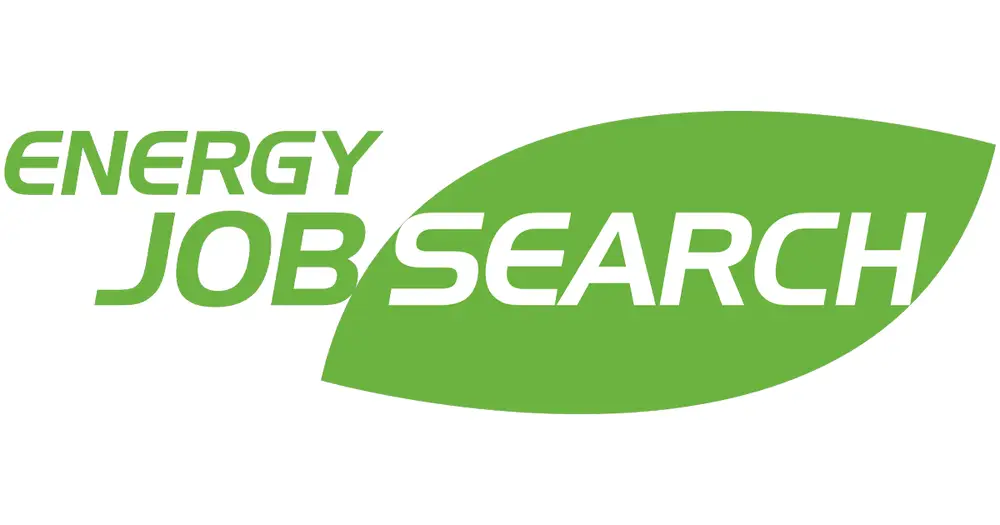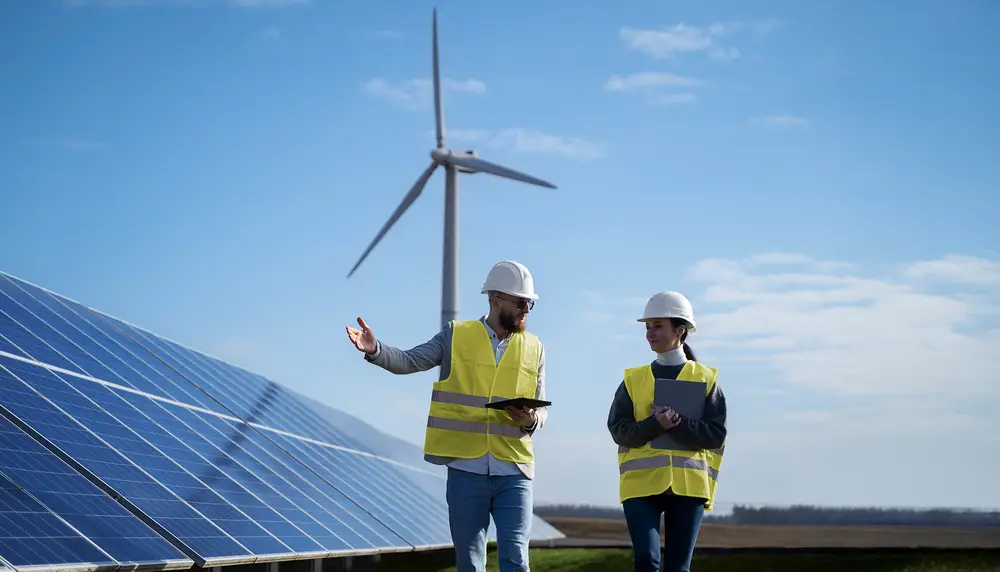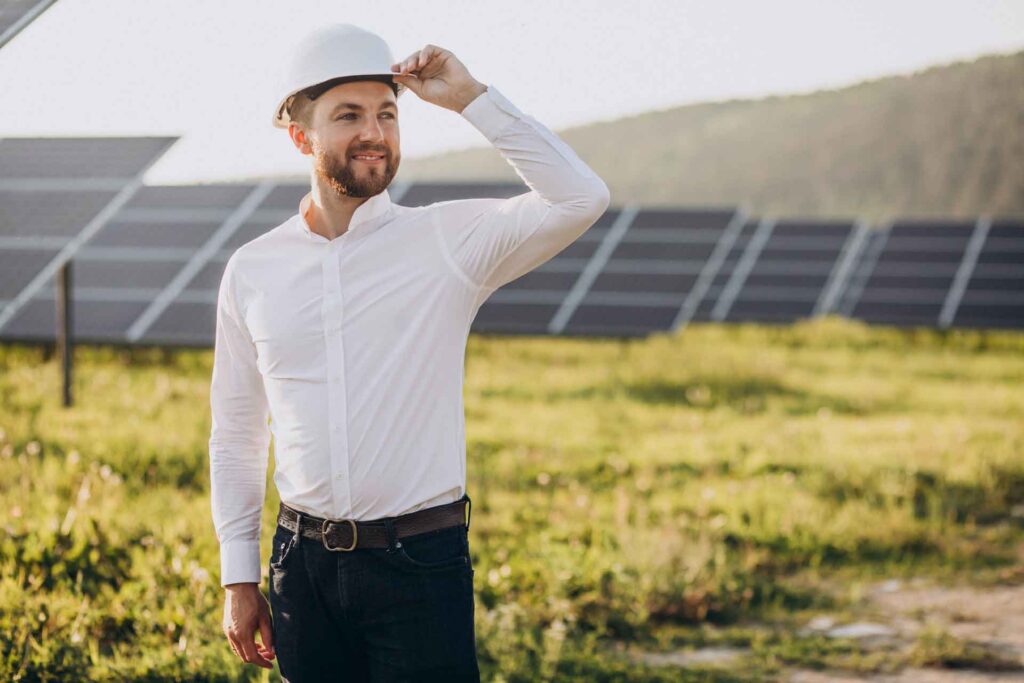Project managers in the renewable energy sector are very important in helping to coordinate and oversee large energy projects. This can include constructing renewable energy plants like wind farms and solar plants.
Energy companies, large construction companies and landowners hire project managers. Then, project managers use their knowledge and expertise of renewable energy plants. They ensure that projects are completed on time and within budget. Ultimately, they give the best contractors the opportunity to perform the work.
Being a project manager can be a fun path for your career. If this sounds interesting, read on for more details about the profession and how you can pursue a career in renewable energy project management.
The Role of a Renewable Energy Project Manager
A renewable energy project manager ensures the completion of the renewable energy plant, such as a solar or wind farm, that they are hired to manage.
Ιn larger and more complex projects, a few managers may divide the work, with one project manager overseeing only a portion of the overall construction. All project managers then report to a senior project manager or site manager.
Key Responsibilities:
- Oversee the development of renewable energy projects from initial planning to completion.
- Managing project budget, timeline, and scope
- Providing the information needed to hire contractors, engineers, and other workers.
- Allocates resources to departments as needed.
- Assures the project is kept on budget and requests additional funding.
Essential Skills and Qualities
All successful project managers exhibit a few key skills that are in demand in the energy sector and integral to successful work performance.
- Communication skills: Must be able to clearly communicate business concepts to the internal and external stakeholders, including project status, requirements, and timelines.
- Management skills: As the name of the role suggests, project managers document and keep track of all aspects of the construction process. Often, they use project scheduling software to inventory resources, schedule contractors, and manage project risks.
- Interpersonal skills: Provide leadership and collaborate with a team of company employees, vendors, employees, and leadership.
- Analytical skills: Can analyze several factors related to building an energy plant, such as average salary for workers or the standard bidding process for contractors. This analysis is then used with the information they have to create innovative technical solutions to any problems that arise.
- Contracting skills: Project managers use their familiarity with contracting processes to help identify and hire workers, including inspectors, engineers, and material suppliers. After hiring the workers, project managers monitor scheduling and workflow.

Important Project Management Tools
Project managers are renewable energy jobs that use several project management (PM) tools to streamline projects. They help avoid missed deadlines, assign tasks, and ensure each stage of the project is completed appropriately.
The tools include general project management software like scheduling and project trackers. Renewable energy-specific project management software may also be used. These programs gather and monitor energy generation and use data when the solar or wind farm goes online.
Top 5 Project Management Methodologies
In addition to project management tools, project managers use project management methodologies to help efficiently manage projects. Methodologies are principles and processes that streamline a large project like a solar farm and help break it down into manageable daily tasks.
No two methodologies are completely the same. The manager chooses the methodology based on the industry standards and the project’s risks, goals, and size. The most popular and widely used methodologies are:
- Agile: a very flexible approach that breaks work into frequent cycles for continuous improvement.
- Kanban: focuses on visual task management.
- Lean: maximizing value by reducing waste and improving efficiency.
- Scrum: a subset of the Agile methodology that uses short sprints for rapid progress.
- Waterfall: a linear methodology for projects with clear and fixed requirements. Tasks are completed in sequence.
As no one methodology can fit every type of project, part of a project manager’s role is to have the experience to know which methodology to choose for each project.
Renewable Energy Project Manager Job Profile
To become a renewable energy project manager, it’s important to understand the full profile of the role.
Daily Tasks
- Hold regular meetings with clients, subcontractors, and management. These meetings are used to communicate and confirm project progress between departments.
- Oversee the work plan and staffing of each stage of the project plan.
- Coordinate with legal departments to ensure that bid packages and contracts are complete.
- Analyze each day’s data and use the information to make adjustments
- Establish construction budgets and review them as necessary.
- Respond to change orders and submittals.
- Prepare feasibility studies
- Documenting each day’s events
- Professional development
- Networking with stakeholders
- Lead quality assurance assessments
Work Environment
A project manager’s work environment is split between the office, where planning and analyzing are done, and the construction site, where fieldwork is completed.
Office work will include meetings with stakeholders and clients, management meetings, and data analysis. Or can be long hours at a desk, sending emails, and taking phone calls.
“The speed of change in the renewable energy industry keeps the job interesting, with new problems to solve“
Fieldwork at the construction site can involve collaborating with contractors, engineers, regulatory bodies, and anyone involved in the physical construction of the solar or wind farm. In fact, this time is spent on your feet in construction areas where construction occurs, so there could be loud noises and areas requiring personal protective equipment.
How much time is spent in each area will depend on the current status of the building and the daily needs of the project.
Is Project Management in the Renewable Energy Sector Fun?
Project management is an enjoyable career that involves dynamic work and allows for significant contributions to sustainability.
Job Variety
No two days are the same in project management although there are elements that repeat from project to project. The speed of change in the renewable energy industry keeps the job interesting, with new problems to solve and different people to interact with as the situation evolves.
The job can be high-stress at times, especially with large-budget commercial projects. However, if you enjoy working with cutting-edge technology and turning ideas into reality, you’ll fit right into this field.
Contributions to Sustainability
Unlike other projects, playing a key role in developing and building a renewable energy structure offers a chance to contribute to environmental sustainability.
As a project manager, your skills have a positive impact on how energy is created. They help build structures for renewable energy generation and distribution, supporting the shift away from traditional energy sources like oil and gas.
You also have the opportunity to hire workers, contractors, and other professionals for a job in the renewable energy sector, positively impacting their lives and the environment.
How to Find a Job as a Project Manager in Renewable Energy
If this sounds like an exciting opportunity, you need a few requirements to get started. These are essential for beginning a career as a project manager in renewable energy.
Education
Like many renewable energy jobs, most project managers obtain at least a bachelor’s degree with a major in engineering, environmental science, or business. Many projects prefer candidates with a graduate degree focused on a related topic.
Certification
Recognition as a Project Management Professional (PMP) is the industry standard. Additionally, LEED (Leadership in Energy and Environmental Design) certification is also an asset.
Career Path
Project managers in renewable energy often start as interns in large projects working on the projects and getting experience in the different areas of the build. This allows you to learn about how departments work together and how a project manager oversees the smaller tasks to benefit the larger project.
“Project management in renewable energy is a fun and rewarding path for people who thrive in a high-paced managerial career.“
You may then step up to begin working as a project manager, either on your own or taking ownership of a smaller part of a much larger project, reporting to a senior project manager.
After gaining years of experience, project managers often move into more senior roles. This could include becoming a senior project manager or a consultant, supporting and providing resources for newcomers to the field.
Networking
Networking is an important part of the job and this can be at professional organizations, conferences, and events designed to connect industry professionals. For example, project managers can find a job that has not been advertised or fill gaps in their resumes within the renewable energy sector.
As project managers work with and are often involved in the hiring process, networking can also help you learn about new workers in the industry that could benefit a future project.
Conclusion
Project management in renewable energy is a fun and rewarding path for people who thrive in a high-paced managerial career. You will have the chance to contribute to environmental sustainability and participate in developing and building key renewable energy projects.
If you want to learn more about the energy sector and the career opportunities it offers, check out EnergyJobSearch.









